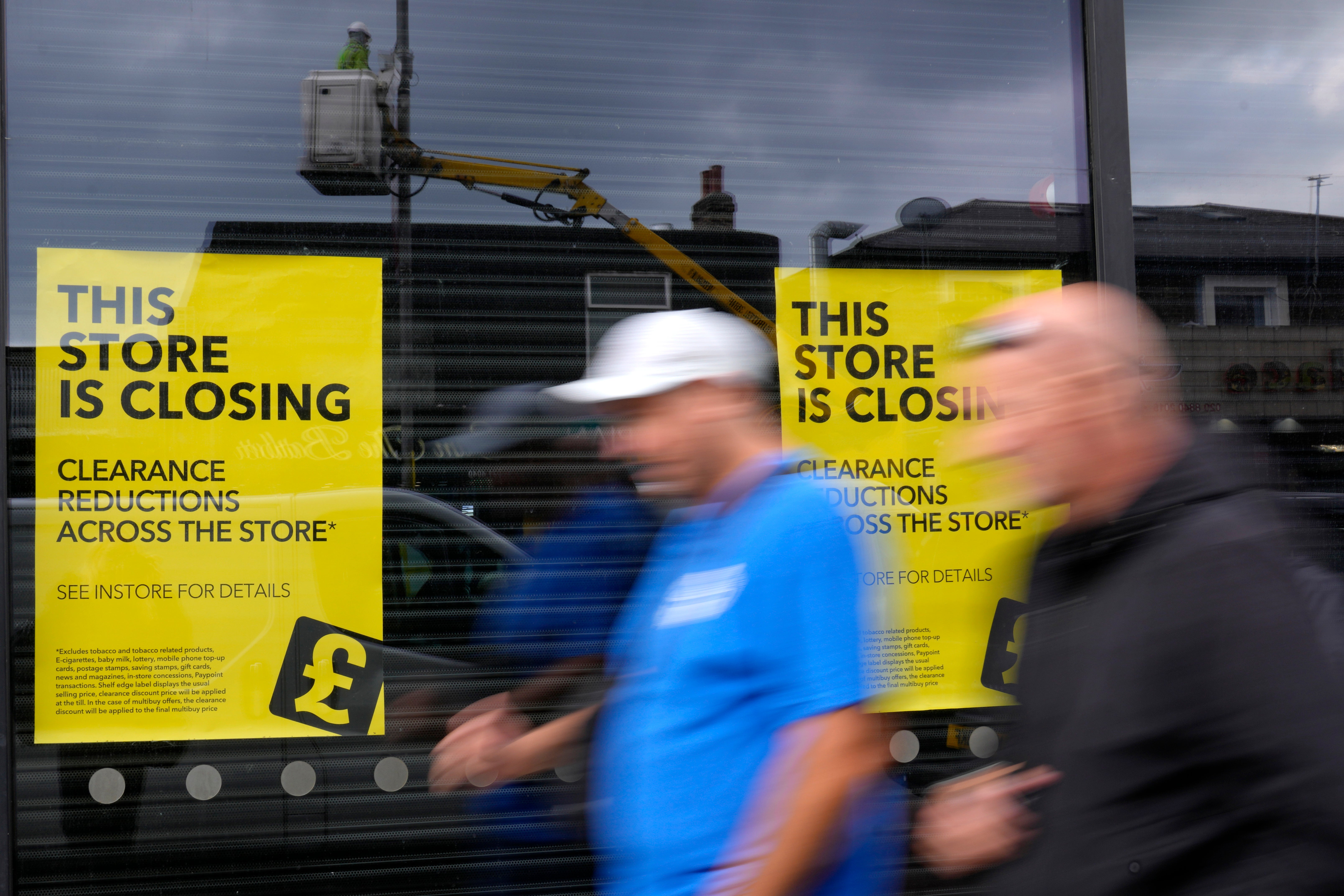Cost of living ‘forcing shoppers to big chains due to lower prices’
Trends means SME are struggling to compete, survey finds

Your support helps us to tell the story
From reproductive rights to climate change to Big Tech, The Independent is on the ground when the story is developing. Whether it's investigating the financials of Elon Musk's pro-Trump PAC or producing our latest documentary, 'The A Word', which shines a light on the American women fighting for reproductive rights, we know how important it is to parse out the facts from the messaging.
At such a critical moment in US history, we need reporters on the ground. Your donation allows us to keep sending journalists to speak to both sides of the story.
The Independent is trusted by Americans across the entire political spectrum. And unlike many other quality news outlets, we choose not to lock Americans out of our reporting and analysis with paywalls. We believe quality journalism should be available to everyone, paid for by those who can afford it.
Your support makes all the difference.Eight in 10 Britons claim the rising cost of living is forcing them to shop with big brands and national firms to get the cheapest possible price, even though they would prefer to shop locally.
A survey of 2,000 adults found 21 per cent liked to support smaller businesses when they could, due to better customer service, more unique products and wanting to put money into the local community.
But despite their best intentions, 42 per cent had already started looking for the cheapest option for lots of products due to the cost of living pressures.
These shopping habits are already starting to hit local shops and small businesses, as a separate survey of 750 small and medium sized business (SME) owners found three-quarters were questioning the long-term viability of their companies.
And some 80 per cent said they were struggling to compete with the lower prices offered by larger firms, causing 72 per cent to lose customers.
Almost three-quarters (73 per cent) believe the current economic climate is making it harder than ever to compete, leaving 69 per cent with no option but to increase their prices.
The research was commissioned by Santander UK. John Baldwin, the company’s head of commercial banking, said: “It’s clear businesses of all sizes are facing into a tough winter. However, our conversations with SMEs find them increasingly resilient and resourceful.
“They proved during the pandemic with the right support and adaptations to their business models, they could survive and, in some cases, even prosper.
“Many have already adapted their business models, enhanced their products, explored and exploited new markets, developed new skills and reviewed their costs and pricing to counter the spiralling cost of supplies, energy and labour.”
Pollsters also found the trend to shop with whoever provides the cheapest products and services is a new direction for shoppers, because 55 per cent of those polled claimed to have tried harder than ever before to support their local businesses when the pandemic began.
And between March 2020 and 2022, 67 per cent of small businesses experienced an influx of new customers.
During this phase of the pandemic, when shoppers were focused on supporting local businesses, 49 per cent were impressed by the variety of goods on offer from nearby stores, and 47 per cent liked the friendliness of local proprietors.
More than four in 10 (43 per cent) had been able to retain their focus on shopping with local companies, with 28 per cent believing it is “very important” local businesses in their community are successful.
But one-quarter had recently scaled back this support, going out less for food and drink locally to save money. Some 23 per cent were no longer making purchases from local clothing stores, and 11 per cent were cutting back on attending nearby concerts or supporting their local music scene.


Join our commenting forum
Join thought-provoking conversations, follow other Independent readers and see their replies
Comments